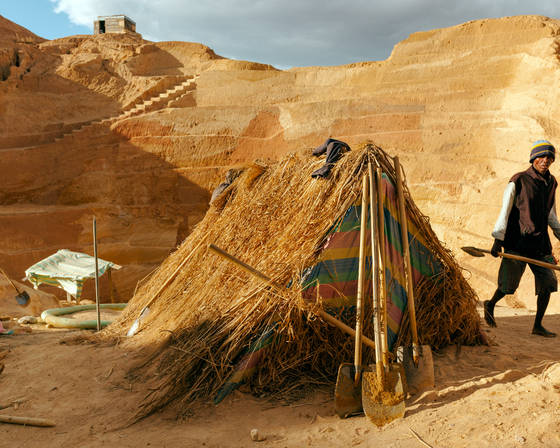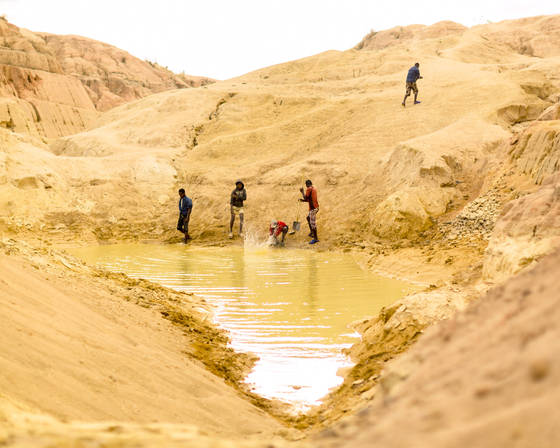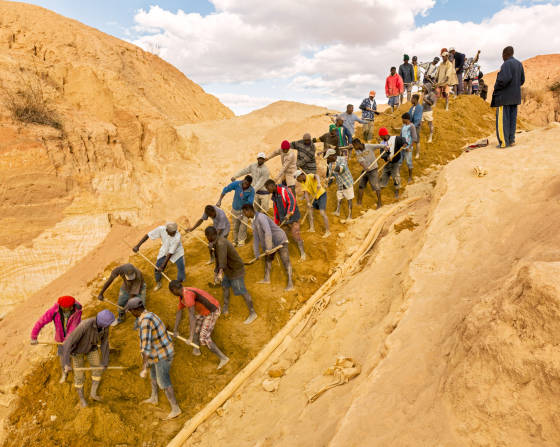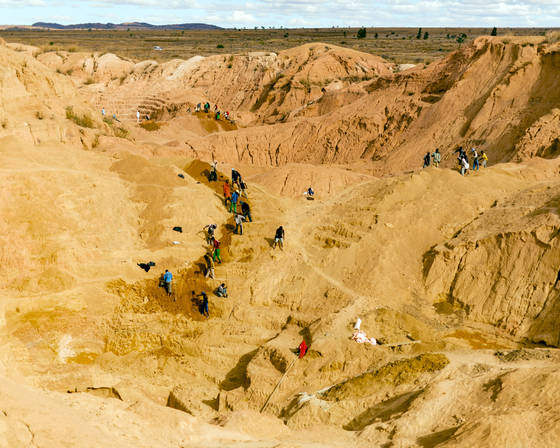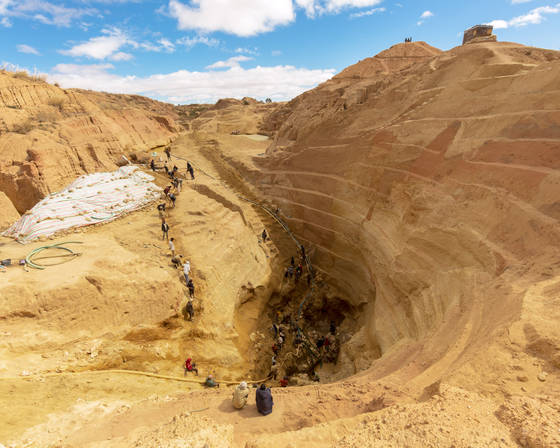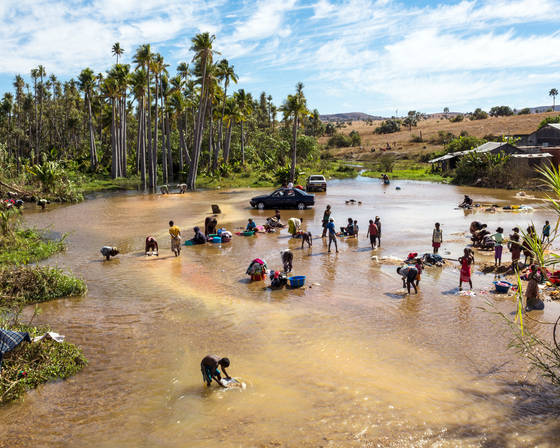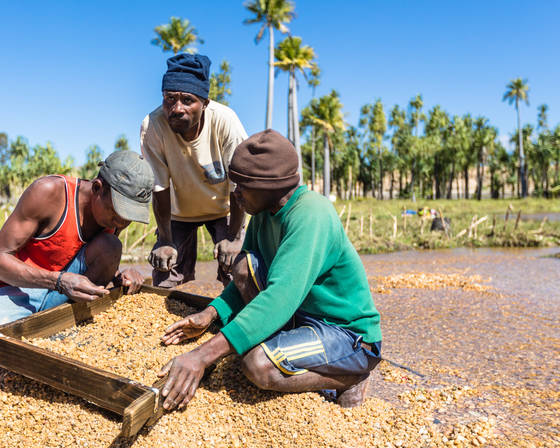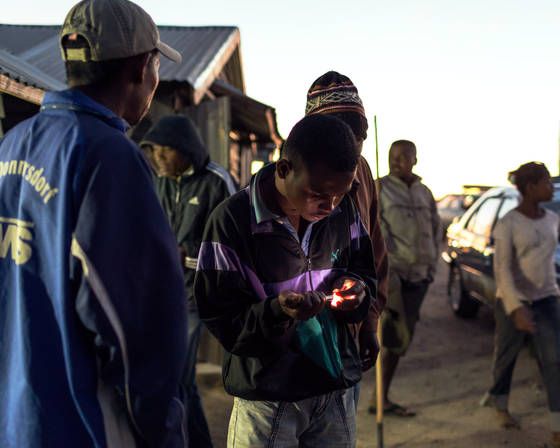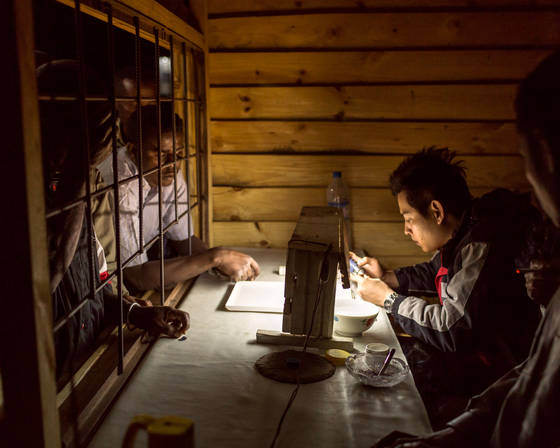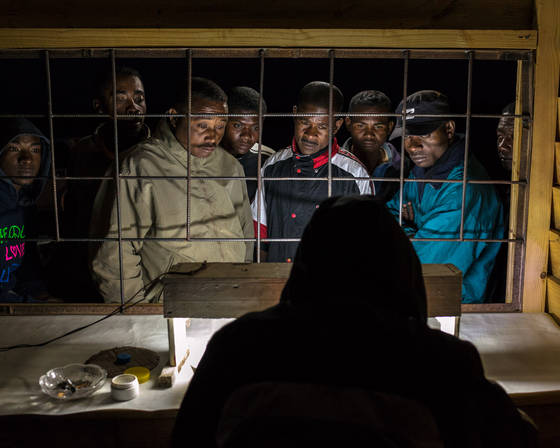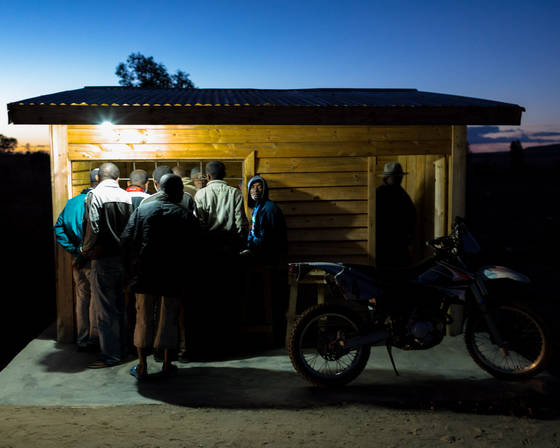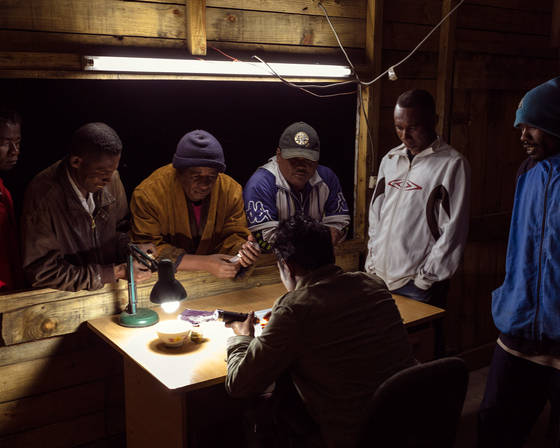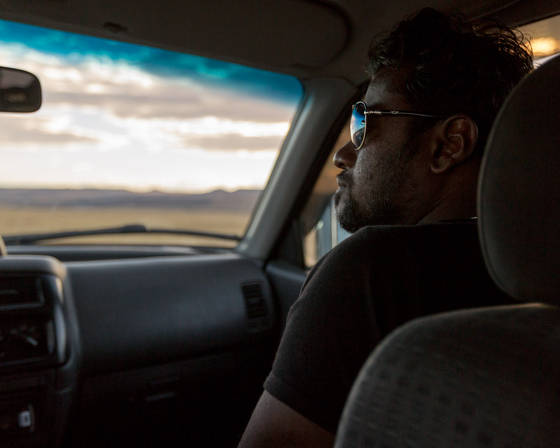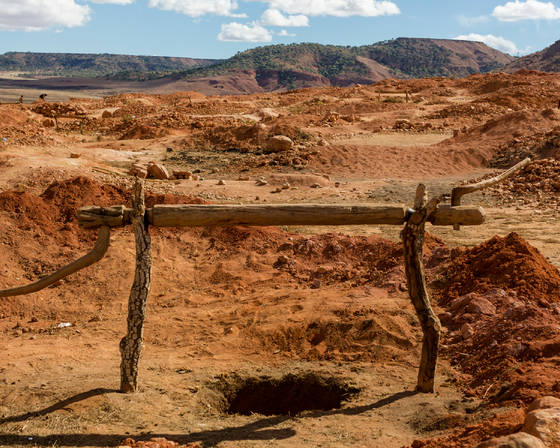Illegal Sapphire Mining
Ilakaka in the centre of the arid, southern plains of Madagascar is a product of an explosion in Sapphire discovery and trade. In 1998 this sleepy town had a population of 40 villagers but now numbers close 60,000. Labourers have migrated in from across Madagascar and traders from around the globe. Madagascar’s sapphires resemble those from Sri Lanka as the two islands were once part of a single geological structure that was torn apart by plate tectonics. Concentrated by ancient rivers and alluvial deposits these stones are now found at a depth of 20-50m below the surface of the desert landscape..
Close to Ilakaka town centre mountains of sand and gravel rise ominously above the desert plain. After scaling the terraces of uniformed coloured earth the sound of a water pump is heard coming from the depths of a seemingly bottomless pit. This unstable 40-50m deep hole is the town’s main sapphire mine and is referred to as the “Swiss Bank”. The operation is financed by a polite but secretive swiss entrepreneur who has been investing and seemingly profiteering from Ilakaka since the first gem rush over 14 years past.
In times past an anarchist community of pirates called Madagascar home. It was an island beyond the law and off the map, a place of rogues, booty and bounties. These were outlaws moored on a marooned ecosystem. Set adrift 88 million years ago, the island is a castaway in the Indian Ocean, inhabited by a band of ecological stowaways. In this splendid isolation it has evolved into an unparalleled wonderland of the weird and unique, diverse and unbelievable.
A political coup in 2009 left the country adrift once more – isolated from the international community, deprived of foreign aid and conservation funding. One of the planet’s most precious ecological treasures is home to one of its poorest nations and it raises difficult and complex questions about the relationship between necessity and luxury. Amidst political uncertainty, the island’s fragile and unique ecology is being smuggled out illegally, boat by boat, gem by gem
Smaller, guerilla mines account for the high frequency of fatalities in the region. Exploratory wells are sunk vertically down, upto 50m, until the sapphire rich gravel is reached. Men, spoil and gravel alike are hoisted and lowered down the wells by make-shift log and rope winches. The mines are dug simply with a sharpened piece of steel rod but without any installation or reinforcement they are liable to collapse. Boys as young as 12 are killed by cave-ins or asphyxiate in the tunnels.
Every day at 4pm precisely, miners from across the region descend on Ilakaka and the village of Manombe to the North to sell their day’s treasure. The Gem Traders, from Sri Lanka and Thailand, have purchasing posts ranging from simple wooden huts to giant marble palaces. Competing with each other for purchase of the stones the experts are armed with a simple magnifying torch, a water bowl and year’s of experience. The Malagasy miners queue and jostle with each other as they visit different dealers hoping to strike the best cash price. Tensions run high with each stone often representing a week’s labour from 5-25 men. Violence between the miners is common as is the occasional murder and robbery of a trader adding to the Wild-West atmosphere.
Despite Malagasy sapphires accounting for over half the world’s supply; Madagascar and Ilakaka are still terribly poor and polarised regions. Gems are almost exclusively shipped, rough and uncut, to Sri Lanka and Thailand for polishing and sale. Much of the profit and certainly the mark-up occurs over-seas.
